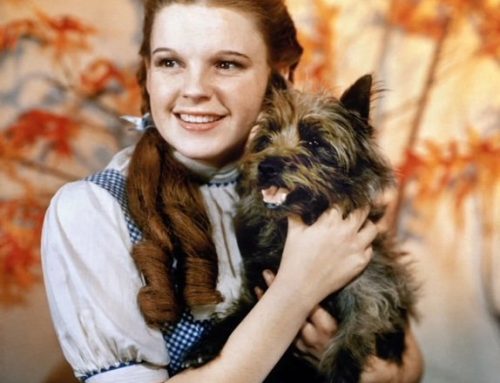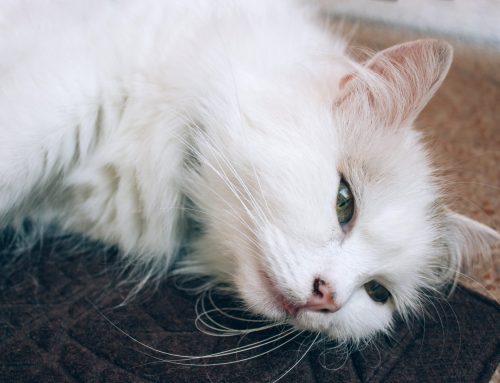What does the price of gas have to do with feeding your cats and dogs?
Everything!
The cost of gas is a clear sign of inflation. Gas prices going up (and it doesn’t look like it’s stopping anytime soon) means that it costs more to transport commodities, which means the price of commodities will increase. Some people guess that by the summer of 2022, the average American family of four will be spending an additional $1,000.00 on their grocery bill each month! So what will happen when families have to decide between filling up their tanks or buying food for their animals?
History tells us that when pandemics or famines happen, people have to let go of their animals. We do not want that to happen this time. We love you and your pets, so I am writing this article in hopes that I can provide some survival/prepping tips to help you prepare for what might be inevitable.ight be inevitable.
- Dry Food: It may be wise to store a few bags of dry food in the back of your closet. The trick is…Dry food usually contains oils that will eventually go rancid. So either freeze them if you have the space in your chest freezers or place a moisture reducer inside the bag.
(Prepper tip) if you do not have a moisture reducer you can crumble up 000-grade steel wool with salt in a sock and put it inside the bag. Close the bag tight and save for a rainy day.
(Health tip) It is good to have Canine/Feline Comfort LIVER on hand. It’s a loose powder and can be stored for a very long time. It contains Psyllium Seeds (a good fiber that can bulk up the belly), Enzymes (to break down dry food), Probiotics (to keep the gut healthy and able to digest), L-glutamine (amino acids that repair torn tissues caused by stress and acidity), Slippery Elm (to soothe the gut), and desiccated Liver Powder (an excellent source of healing nutrients)
Note: Comfort is not a food but it can help to stretch food and provide added proper nutrients.
2. Canned Food: The next time you are at the store or placing an order online for your animal’s food, buy a few extra cans. Cans will store very well. This is why they are designed. In the wake of WWII, commercial canning hit the shelves to help families keep food. The problem with canned food is that to preserve the food in the cans for so long; they have to add that “jelly” that you see come out with the food. That “jelly” sometimes has ingredients that irritate the stomach and interfere with proper digestion. If you are in a pinch, it will work.
(Prepper tip) If the can is damaged, this could allow air into the can and spoil the food. You will want to avoid damaged cans or take the food out, place it in a zip lock bag, and freeze it. Once you have opened the can, do not leave the food in the can for a long time. The can will start to oxidize and ruin the rest of the food.
(Health tip) It is a good idea to have Luxolite and Enzymes in stock. Enzymes (a loose power) can be sprinkled on the food and then refrigerated for up to 20 mins. This will break down the food particles, making the food much like baby food consistency. It is easier for the animal to digest and “stretch” a can of food into more feedings.
I mention Luxolite because of something in my own experience. I was not aware that there was a crack in the can of food that I was feeding my dog. She got poisoned and was throwing up constantly. She was very sick. I gave her a syringe of Luxolite in her mouth, mixed with a bit of water, every 15 mins for 24 hours. This pulled out the toxins and, I believe, saved her life. Luxolite is my TOP PICK for an emergency scenario. I always have some with me and on my shelf, just in case.
In the event of hunger pangs and the acidity that builds up when an animal is not eating, Luxolite and Comfort mixed will help soothe this issue.
3) Table scraps: Depending on how bad it gets, there may be a time when your animal is sharing your dinner. This is ok. Until the 1950s, animals would regularly eat table scraps. Pet food was only beginning to become popular at that time. The trick is to know what and what not to feed them. In the beginning, you may be able to continue giving your animals cans of tuna, ground turkey, canned pumpkin, and jasmine rice (white rice will store for a more extended time than other types of rice)
Safe foods for cats:
- Apples (soft and small pieces-remove all seeds)
- Asparagus
- Bananas
- Blackberries
- Broccoli
- Brussels Sprouts
- Cantaloupe
- Carrots
- Cauliflower
- Celery
- Cheese (small amounts)
- Chicken (cooked)
- Cottage Cheese (small amounts)
- Cranberries
- Dog Food
- Eggs (cooked)
- Fish
- Ground Beef
- Beef and Chicken Stock (no spices, garlic or onions)
- Kiwi
- Lettuce
- Oatmeal
- Papaya
- Peanuts
- Popcorn
- Oranges
- Pork
- Pumpkin (cooked)
- raspberries
- rice
- shrimp
- spinach
- strawberries
- turkey
- watermelon
- yogurt (small amounts)
NOT safe for cats:
- Alcoholic Beverages
- Apricots
- Cherries
- Peaches
- Plums
- Avocados
- Baked Goods
- Xylitol
- Baking Powder
- Baking Soda
- Bones
- Bread Dough
- Chewing Gum
- Chocolate
- Coffee
- Fatty Foods (could cause pancreatitis)
- Grapes
- Raisins
- Moldy or Spoiled Foods
- Onions
- Garlic
- Peanut Butter
- Nutmeg
- Raw Potatoes
Safe foods for Dogs:
- Peanut Butter (good protein)
- Oatmeal
- Chicken
- Salmon
- Pumpkin
- Green Beans
- Carrots
- Celery
- Eggs
- Apples
- Oranges
- Bananas
- Watermelons
- Cucumbers
- Peas
- Zucchini
- Plain Baked Potato
- Rice
- Beef or Chicken Bone Broth
- Yogurt (a small amount)
- Cottage Cheese (a small amount)
- Cranberries
- Blueberries
- Blackberries
- Broccoli
- Spinach
- Brussels Sprouts (a small amount. It could cause gas)
- Cauliflower
- Fish
- Ground Beef
- Pork
- Turkey
- Shrimp
- Spinach
- Kiwi
- Raspberries
- Sweet Potato
- Cantaloupe
- Bananas
NOT safe for dogs
- Fatty Foods
- Persimmons
- Peaches
- Plums
- Extra Salt
- Chewing Gum
- Candy
- Macadamia Nuts
- Alcohol
- Almonds
- Popcorn
- Coconut
- Peppers
- Cherries
- Olives
- Mushrooms
- Avocado
- Grapes
- Apricots
- Pitted Fruits
- Rhubarb
- Yeast
- Baked Goods
- Baking Powder
- Baking Soda
- Xylitol
Prepper tip: The next time you go to the store, pick up a few extra pounds of ground turkey or fish. Also, grab a few extra cans of organic cooked pumpkin (no spices). Pre-cook the meat, add cooked rice, veggies, and some canned pumpkin. Let it cool. Fill a zip lock bag full of the food. Please place it in the back of your freezer and forget about it until you need it. Also, it is ok to mix a little dry or canned food with table scraps. This can help the transition to human food a little easier.
Health tip: Celloquent and Vital Pet Lipids. Celloquent has many benefits, but the two most essential ingredients are blue-green Algae and Desiccated Liver Powder for this scenario. Blue-green Algae has been believed to have the capability to end world hunger. It is a high source of protein with up to 62% of essential amino acids. It contains calcium, magnesium, vitamins A, C, E, B12, and B6. It helps to ward off infection and helps increase the immune system, lowers inflammation, contains antioxidants, promotes heart health, can decrease atherosclerotic lesions of plaque in the blood vessels, and promotes cell function. Desiccated Liver Powder is an excellent source of protein. Vital Pet Lipids are the perfect companion to Celloquent as some of the ingredients are fat-soluble and work better in the body when combined with a lipid. Vital Pet Lipids are a complete source of essential fatty acids and provide good fat for brain and body health.
Note: Celloquent and Vital lipids are not food but they are an excellent addition to the diet.
In summary, I suggest that you print out this article and keep it in an envelope close to your pet’s food so that you can refer back to it in case of an emergency food shortage. I suggest going out and buying a big bag of rice, some extra cans, or a few more bags of dry food before, in case the shelves go bare. If nothing happens….then GREAT! You won’t have to take another trip to the store for a few months. If something happens, you will be prepared to feed your companion pet through this unprecedented and challenging time. We cannot predict the future, but we can look to what has happened in other countries and the past and be prepared to keep our fur family safe and healthy.







We should all be prepping for the coming food shortages. It is DEFINITELY COMING. Thanks to the current Administration and their Globalist allies, the 2030 Agenda is proceeding in epic fashion, with an astounding number of Americans following the “Green” and Godless agenda like the sheep to slaughter they are. I never thought I’d see my country die like this, but the Marxist Ideology has killed the USA.
Great advice thank you ! Absolutely people need to wake up!